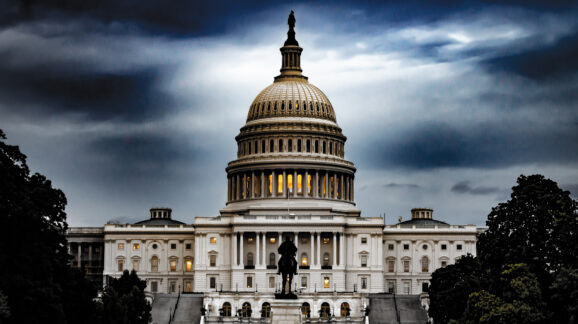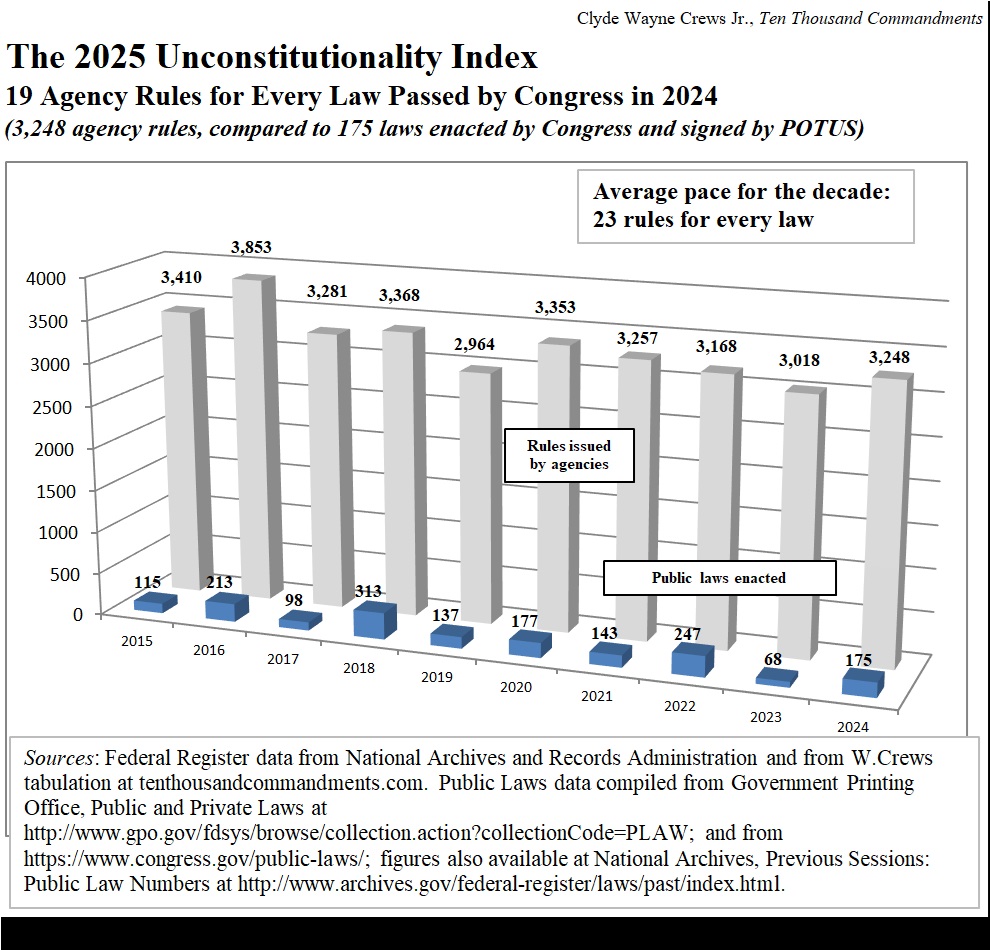Is Congress even trying? 3,248 new rules vs. 175 laws

Photo Credit: Getty
In 2024, federal agencies issued 3,248 rules and regulations, while Congress enacted only 175 laws. I refer to the simple ratio—19 rules for every law passed—as the Unconstitutionality Index.
The new Index (preliminary, but reliable as I monitor inbound official archiving) is a sharp decline from 44 the previous year. However, fluctuations in agency rule counts and legislative activity, like President Biden’s December 23 signing spree, can cause significant year-to-year swings.
Despite annual variability, the Index consistently reveals Congress’s abdication of its constitutional role in lawmaking, allowing federal agencies to dominate certain aspects of policy creation. Over the past decade, the average has been 23 rules for every law enacted.

Federal agencies have consistently produced thousands of rules annually, peaking at over 7,000 in the 1970s and 1980s. Although the annual count has stabilized above 3,000, their cumulative effect grows with little rollback. The Federal Register closed 2024 with a record-setting 107,262 pages, underscoring the scale of regulatory expansion even as rule numbers have flattened. Notably, a recent rule from the Biden administration seeks to ban certain tankless gas water heaters, exemplifying the need for stronger congressional oversight.
All this said, the smaller number of laws compared to the flood of agency rules should not lead reformers of the administrative state to overlook their impact.
While many laws address routine matters like post office renamings. recent major legislation—such as the CHIPS and Science Act and the Inflation Reduction Act—fuels expansive and expansive rulemakings. This dynamic enables agencies to subsequently implement substantial policy changes without direct congressional oversight, often bypassing notice-and-comment rules with informal guidance, policy statements, memoranda and other forms of regulatory dark matter.
Fault lies on both sides. Addressing Congress’s legislative abdication and curbing agency overreach are essential steps toward restoring constitutional governance, accountability and ensuring that laws impacting Americans are enacted by their elected representatives.
The simple Unconstitutionality Index, then, serves as an anchor for discussions on limiting unchecked regulatory expansion—whether that expansion stems from agencies or from Congress itself. Potential reforms we discuss at length elsewhere include adopting regulatory budgeting, establishing a Regulatory Reduction Commission and requiring congressional approval for significant or controversial agency rules.
We need laws against laws. The Index is here to help.
For more:
“Biden’s 2024 Federal Register Page Count Is Highest Ever,” Forbes
“The 2025 Unconstitutionality Index: Exposing Congress’s Abdication Of Power,” Forbes